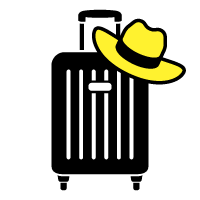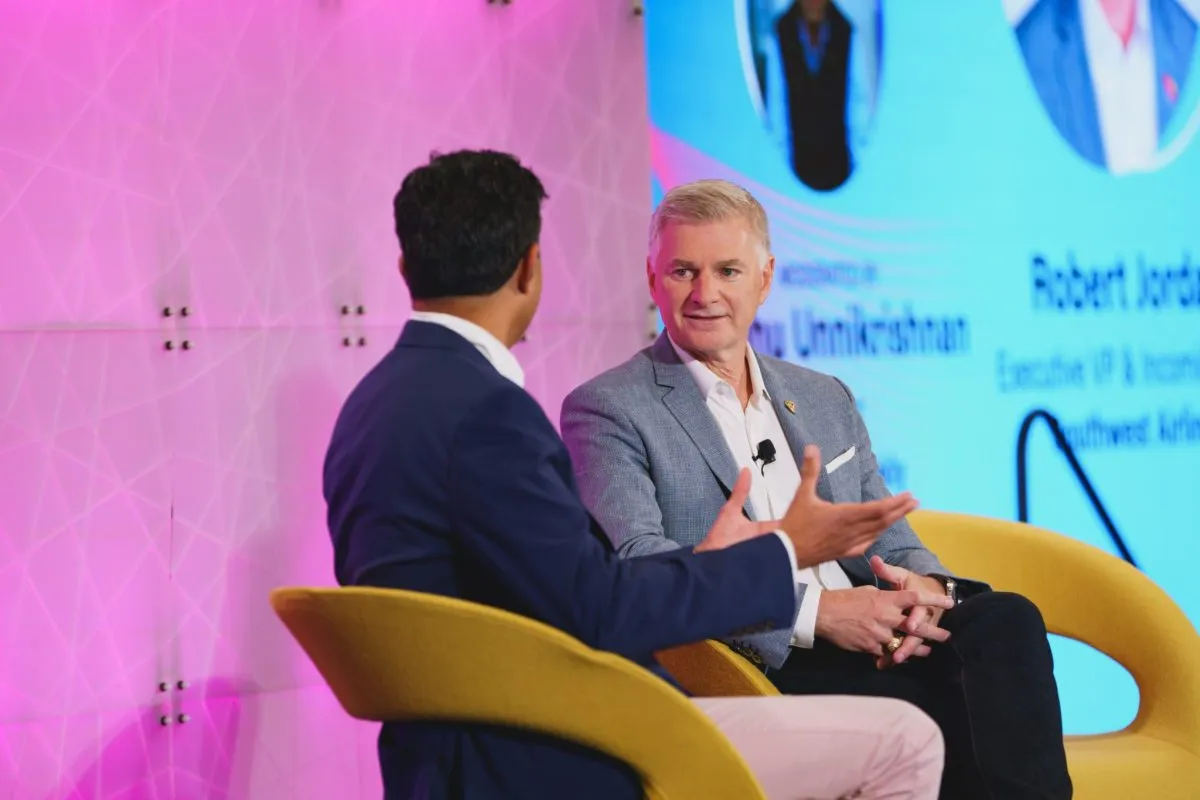IHG CEO Targets Indie Hotels in Tech-Driven Expansion — Exclusive Interview

Skift Take

Leaders of Travel: Skift C-Suite Series
What are the top trends impacting hotels, airlines, and online bookings? We speak to the executives shaping the future of travel.As the president and CEO of IHG Hotels & Resorts, Elie Maalouf has his hands on the levers of an industry being reshaped by technology, loyalty economics, and the gravitational pull of big brands.
“There’s always been a mix of local and global in hospitality, but the game has changed,” Maalouf said. “Today, the regional players that want to go further need access to capital, technology, and distribution networks that only global brands can provide.”
One clear example is IHG's April 2024 deal with Novum Hospitality. A homegrown German group decided it made more sense to hitch its future to IHG than to go it alone with its own brands.
That decision—turning over 119 properties for franchising to the IHG machine—tells a bigger story about what’s happening across Europe’s fiercely independent hospitality scene.
A year and a half into the role, Maalouf sat down with Skift for an exclusive interview at the Americas Lodging Investment Summit (ALIS) in Los Angeles. The CEO covered the dynamics he sees driving more independents to IHG, how tech investments could give IHG a competitive edge, and why he's excited about Japan's potential for hotel development (from midscale to luxury).
IHG's European Land Grab
Europe is a key market for a global hotel group like IHG. Only about 40% of hotel inventory there is branded, according to CoStar's STR.
“We see tremendous opportunity for growth in Europe, where independent hotels and regional chains are realizing that competing in today’s digital landscape is incredibly expensive,” Maalouf said.
Rather than trying to buy IHG's way in with hard assets, the group is relying on a franchise-heavy model that emphasizes conversions, such as the Novum deal.
Novum's decision wasn't just about gaining access to IHG's global distribution network. It was also about tapping into a technological ecosystem that would have been prohibitively expensive to build independently.
Tech Playbook
In other words, Europe's hotel landscape requires massive investment in digital infrastructure. "It's the kind of investment that's becoming increasingly difficult for regional hotel groups to shoulder alone," Maalouf said.
"How you interact with the travel experience from beginning to end is now very digital," Maalouf explained. "You expect to research and book digitally. You expect to be able to check in and out digitally, to ask for services in the hotel digitally, and so on."
Software investment is one of the ways IHG has sought to be an attractive partner for independent hotel owners who are feeling the squeeze of rising tech costs and changing consumer expectations.
Its multi-year shift to a cloud-based Amadeus-run central reservation system was well-documented pre-pandemic. Since then, the hotel group has continued revamping its tech stack.
Worldwide, IHG has rolled out what Maalouf calls the "industry's leading guest reservation system." The software lets all its hotels sell rooms as well as specific "attributes" — floors, views, experiences — before a guest even walks through the lobby.
Maalouf said it has been rolling out AI-driven systems that flag potential guest issues and provide real-time assessment of guest feedback before they become Tripadvisor fodder.
“If you wait for a survey after checkout, you’ve already lost your chance to turn a stay around,” he said. “The key is fixing problems while the guest is still in-house.”
A new AI-powered revenue management system, already deployed in nearly 3,500 properties, helps optimize pricing in real-time. The company has even re-platformed its content management system to enable multi-language translation and rich-media content delivery.
IHG has also been nudging franchisees toward renovations by offering data on what updates will have the biggest impact on guest satisfaction and revenue.
Maintaining consistent quality across properties is crucial for a company hosting approximately one million guests per night.
"Even if we're 99.9% precise in delivering customer service, that's still a thousand people that weren't exactly satisfied," Maalouf notes.
In China, IHG is even experimenting with robots in hundreds of its hotels by using them for towel and drink delivery. Maalouf was quick to position this as a practical solution to labor shortages.
Boosting the Loyalty Program
IHG One Rewards, the company's loyalty program, is another pillar of Maalouf’s vision. When he took over, IHG had fallen behind competitors in the points wars.
Skift noted that, a decade ago, IHG had the most members in a loyalty program of any group, but since then (and before Maalouf's tenure) had fallen to third place after Marriott and Hilton. As of late 2024, the company was on track to have approximately 145 million members by year-end, while Marriott and Hilton each had over 200 million.
"What really matters is the number of members per room," Maalouf said. "Some hotel companies have fewer rooms than we do. Some companies have more rooms. For fair comparisons, you have to look at the proportion of members per room. On that, IHG One Rewards is right up there with everybody and growing quickly."
“What also matters isn’t just how many members you have—it’s how many of them actually stay with you,” the CEO said.
Nearly 70% of IHG’s room nights in "the Americas" now come from loyalty members, up 10 percentage points from 2019. (Globally, the figure is 60%.) The levels are roughly comparable to what its peer companies report. The proportion is important. Direct bookings by loyalty members avoid the commissions that online travel agencies charge.
According to Maalouf, IHG's loyalty program's recent membership gains are owed to personalization powered by tech. The program lets guests tweak their perks in a way that others don't.
The renewal this year of IHG’s credit card deals with JPMorgan Chase, set to run through 2036, cements the strategy. Credit card fees recognized within IHG’s operating profit will more than triple by 2028, IHG said.
Full Range of Brands
IHG’s growth engine isn’t all high-thread-count luxury. Among its 19 brands, Holiday Inn Express remains the company’s golden goose. The brand has conquered the upper-midscale segment with ruthless efficiency. With over 3,200 hotels worldwide, it’s a reliable, no-frills bet for travelers and a moneymaker for franchisees.
“It’s a brand that resonates across markets because it delivers a consistent, high-quality experience at a price point that works,” Maalouf said.
That said, IHG’s luxury and lifestyle brands have surged in prominence, accounting for 20% of the group's pipeline—nearly double what it was five years ago. The company’s Six Senses, Regent, and Kimpton brands continue to set a high bar, with new projects in sought-after destinations like Santa Monica, Telluride, and the Maldives.
Regent Santa Monica Beach, with its high-end dining and oceanfront spa, is a prime example of IHG’s push into the ultra-luxury space, Maalouf said.
Meanwhile, Six Senses is expanding in the Americas and Europe, capitalizing on growing demand for sustainable, experience-driven luxury.
“We’ve doubled down on luxury and lifestyle, knowing that guests today want more than just a hotel—they want a full-scale immersive experience,” Maalouf said.
Japan’s Untapped Potential
Exhibit A: If the U.S. is IHG’s biggest market playground, Japan is a sleeping giant for expansion. The country’s hotel industry has been historically independent, with only a very small percentage of its total inventory tied to global brands.
However, international travel to Japan is booming—40 million visitors last year, with a target of 60 million. So, Maalouf sees a major opportunity to introduce IHG brands into the mix.
“Japan has been a domestic-driven market for a long time, but that’s changing,” Maalouf said. “There’s a ton of room for branded growth, and we’re ready to bring our solutions to the table.”
The company recently expanded its Garner brand into Japan, tapping into a midscale niche that international players have underserved.
Hustle Culture
Maalouf starts his days at 5am with a workout (twice-weekly outdoor runs when his schedule permits). He joked that health maintenance is much like brand management — consistency is key.
Running IHG is no desk job, so he tries to exercise even while on the road. In recent weeks, he has traveled from Shanghai to Hong Kong, Tokyo, and Singapore, inspecting properties, meeting with regional teams, and speaking at events.
Maalouf said he's still learning, given that he has only been in the hotel industry for a decade. He previously worked at Weyerhaeuser Real Estate Company and as an advisor with McKinsey.
"I learn something every day in this business – multiple things a day," Maalouf reflected. "It's just something to learn from our colleagues, from owners, from journalists. And I get a lot of life and stimulation from it — the process of getting to know everything in this business."
Maalouf's goal for IHG is similar. He expects his team to evolve in response to the latest trends and intelligence.
“Our job is to create long-term value—for guests, for owners, and for our partners,” Maalouf said. “The industry is changing, and we plan to lead that change.”
Accommodations Sector Stock Index Performance Year-to-Date
What am I looking at? The performance of hotels and short-term rental sector stocks within the ST200. The index includes companies publicly traded across global markets, including international and regional hotel brands, hotel REITs, hotel management companies, alternative accommodations, and timeshares.
The Skift Travel 200 (ST200) combines the financial performance of nearly 200 travel companies worth more than a trillion dollars into a single number. See more hotels and short-term rental financial sector performance.





